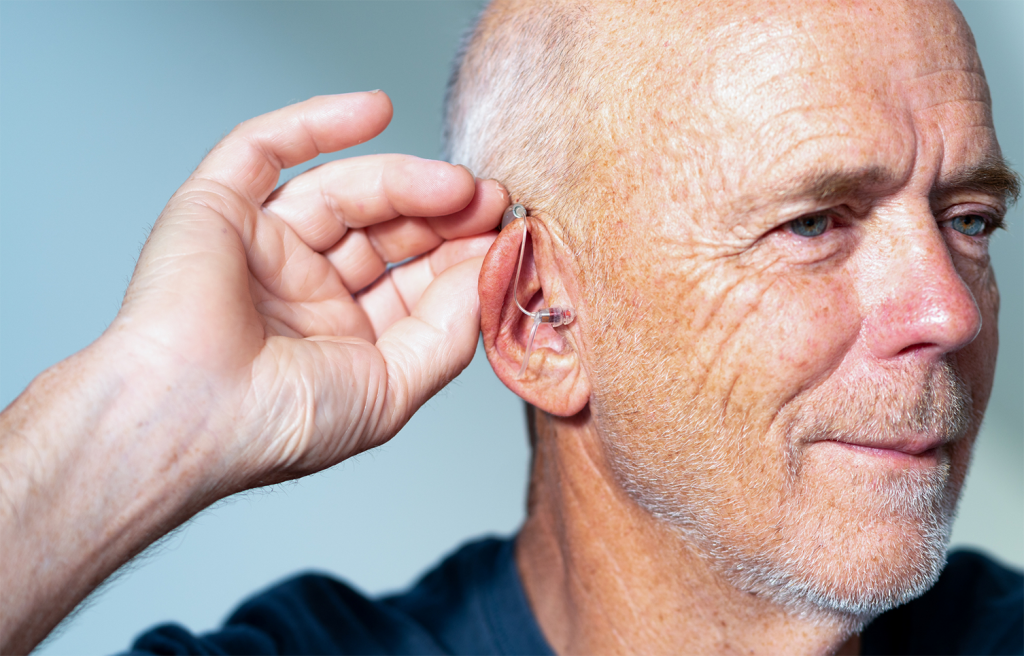
Hearing aids can be quite expensive. In fact, while I was doing some research for this article I found, that like other medical devices and equipment, hearing aids can be a significant investment. Prices can range from a couple hundred dollars on up to more than $6,000 per device, depending on the level of technology needed.
Hearing loss is a common problem caused by aging, disease, noise and heredity. People with hearing loss may find it hard to have conversations with friends and family, hearing doorbells, and even more unsettling: responding to warnings or alarms, even understanding doctors advice.
Nearly one in three people between the ages of 65 and 74 suffers from hearing loss, and roughly half of those older than age 75 have difficulty hearing.
There are four types of hearing loss:
Auditory Processing Disorders
Auditory processing disorder (APD), also known as Central Auditory Processing Disorder (CAPD), is a condition that impacts the brain’s ability to filter and interpret sounds. People with APD can hear, but have a hard time receiving, organizing, and processing auditory information. APD often emerges in childhood.
Conductive Hearing Loss
Your ear is made up of three parts: the outer, the middle, and the inner ear. A conductive hearing loss happens when sounds cannot get through the outer and middle ear. It may be hard to hear soft sounds. Louder sounds may be muffled.
Medicine or surgery can often fix this type of hearing loss.
Sensorineural Hearing Loss
Sensorineural Hearing Loss occurs when the hearing organ, the Cochlea, and/or the auditory nerve is damaged or malfunctions so it is unable to accurately send the electrical information to the brain. Sensorineural Hearing Loss is almost always permanent.
It can be genetic or caused by the natural aging process, diseases, accidents or exposure to loud noises such as Noise-induced Hearing Loss and certain kinds of chemicals and medications. Auditory Neuropathy is another form where the nerves that carry sound information to the brain are damaged or malfunction.
Technologies such as Hearing Aids, Cochlear Implants and Hybrid Cochlear Implants can help reduce the effects of having Sensorineural Hearing Loss.
Mixed Hearing Loss
A Mixed Hearing Loss occurs when both Conductive Hearing Loss and Sensorineural Hearing Loss are present. The sensorineural component is permanent, while the conductive component can either be permanent or temporary. For example, a Mixed Hearing Loss can occur when a person with Presbycusis also has an Ear Infection.
Unfortunately Medicare does not currently cover hearing aids or any routine hearing services.
Hearing Exams under Medicare
A doctor who accepts a Medicare assignment will check for hearing impairment during your Annual Wellness Visit, BUT Medicare does not cover routine hearing exams or services. This means that traditional Medicare supplements cannot cover them either. However, if your doctor orders a diagnostic hearing exam because they suspect that you may have an underlying health condition that requires treatment, then Medicare Part B might cover the cost of a hearing test or balance exam.
This will all depend on whether or not the hearing exam is considered medically necessary with diagnosing or excluding another health condition. For example: a doctor may order a hearing exam to see if suspected hearing loss that a beneficiary is experiencing is really a symptom of vertigo or symptom of a neurological condition.
While Original Medicare doesn’t cover hearing exams or hearing aids, some Part C Medicare Advantage or enrolling in a Hearing and Vision insurance plan can help.
Signs and Symptoms of Hearing Loss
According to the Mayo Clinic, some symptoms of hearing loss may include:
Muffling of speech and other sounds
Difficulty understanding words, especially against background noise or in a crowd
Trouble hearing consonants
Frequently asking others to speak more slowly, clearly and loudly
Needing to turn up the volume of the television or radio
Withdrawal from conversations
Avoidance of some social settings
If you suspect that you are suffering from hearing loss, and not just the effects of a short term illness, you should visit an audiologist to get a diagnosis.
Finding Help With The Cost Of Hearing Aids:
Since Medicare does not cover the cost of hearing aids, there are other options worth investigating to help. Here are some options:
In 2017, the FDA Reauthorization Act was signed into law. It included a clause that requires the FDA to create a new category for hearing devices called over-the-counter hearing aids (OTC HAs), for people with self-perceived mild-to-moderate hearing loss. This new class of products will be able to be marketed for hearing loss but will be available without any kind of prescription or the involvement of a licensed professional. The regulations must be in place by 2020.
People with Medicaid may qualify for hearing aids through their state’s Medicaid benefits.
If you have money in a Health Savings Account (HSA) or Flexible Spending Account (FSA), you can use those contributions to pay for hearing aids and batteries.
If you are a veteran and your hearing loss is related to your time in the military, you may be able to get hearing aids and accessories through the VA. Example, the VA provides hearing services to Purple Heart recipients, former prisoners of war, veterans with any paying service-connected disability and several other groups.
There are several non-profit groups that help those who help qualifying individuals with the cost of hearing aids. The National Hearing Aid Project helps low-income individuals with their costs for hearing aids. Hear Now is another program that provides hearing assistance to individuals with low or limited income. You can also visit the Hearing Loss Association of America website for more resources on hearing.
Lastly, you can purchase standalone policies that offer dental, vision, and hearing services.
If you have been diagnosed with hearing loss, and need some assistance looking into these programs, or would like to research stand alone policies available to you, give us a call and we can help!
.png?width=129&height=63&name=second_logo%20(1).png)
